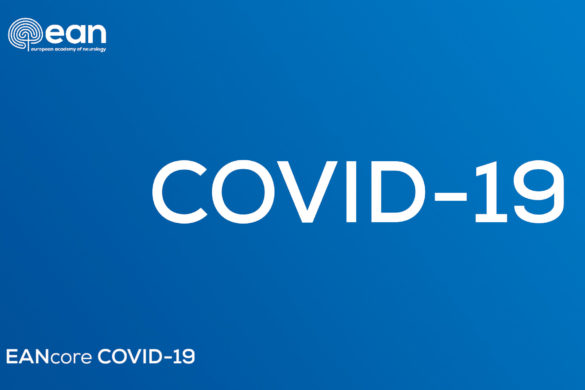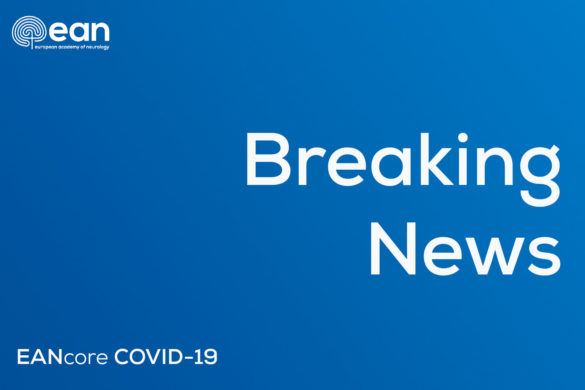By Antonella Macerollo
For February 2020, we have selected: Kleine-Borgmann J, Schmidt K, Hellmann A, Bingel U. Effects of open-label placebo on pain, functional disability, and spine mobility in patients with chronic back pain: a randomized controlled trial. Pain. 2019 Dec;160(12):2891-2897.
Chronic back pain is a highly demanding clinical area in neurology and neurosurgery. Our paper of the month reports an open-label placebo trial with the aim of reducing pain intensity and subjective and objective functional disability in patients with chronic back pain. Patients randomised to the open-label placebo group received a 3-week open-label placebo treatment in association with their previous therapy. Patients in the group labelled “treatment as usual” received no placebo intervention.
The placebo tablets contained microcrystalline cellulose. The authors report an improvement in pain intensity, evident after 11 days of therapy. This paper illustrates an unusual approach to the management of a difficult clinical problem and encouraging outcome data are presented.
The first author of this international single centre open label trial is based at University Hospital Essen, Germany. One hundred and twenty two patients with chronic back pain were recruited. Inclusion criteria were persistent chronic back pain of a minimum duration of 12 weeks and participant age >18 years. The diagnoses were classified according to the Quebec Task Force Classification for Spinal Disorders. Exclusion criteria included any history of malignancy within the past 5 years, psychiatric disorders, and back pain of a mean intensity less than 4/10 on the numeric rating scale a week before baseline. Dose and frequency of drug and non-drug treatment at inclusion had to be stable for 3 weeks before screening and during the study period.
The primary outcome was the composite pain intensity score (mean of minimum, maximum, and average pain intensity during the last 7 days on an 11-point numeric rating scales [0-10, anchors: “no pain at all”–“unbearable pain”6 ]). This primary outcome was assessed at baseline (day 0), day 11, and day 21 after randomization in a patient diary.
The subjective and objective measures of pain-related disability were assessed as secondary outcomes. The Oswestry Disability Index used patient ratings to capture perceived disability in 10 predefined domains (eg, ability to care for oneself, ability to walk, social live, ability to travel, etc; subjective, standardized measure), and the Patient-Specific Functional Scale required patients to assess their ability to perform physical activities deemed relevant by the patient.
The authors collected data also regarding several secondary subjective outcomes including self-reported measures of depression, anxiety, stress.
In the group treated with placebo, the authors explored the treatment credibility and expectancy with the Credibility and Expectancy Questionnaire and the timing of analgesic rescue medication as exploratory outcomes.
Of note, the open-label placebos in combination with the usual treatment significantly reduced pain (primary outcome), disability, and symptoms of depression and stress (secondary outcomes) in the investigated cohort of 122 patients. Moreover, the placebo treatment showed a trend towards a reduced demand for analgesic rescue medication (exploratory outcomes).
The most interesting result was that the analgesic effect of placebo treatment was still present at day 90.
This is the largest study to date to demonstrate that open label placebo treatment effectively reduces pain and disability in patients with chronic back pain. Pain and pain-related disability are the major complaints of patients with chronic back pain in clinical practice, and the author’s patient-reported assessment is the gold-standard outcome in this type of trials. The most important innovative finding of this study is that patients can benefit from placebo treatments even if they know that the substance administered lacks an active ingredient. This differs from previous literature on placebo treatment which suggested that placebo might be effective only in blinded trials. Limitations include the relatively small numbers, and inability to assess longer-term outcomes given the short interval of time of the trial.
The mechanisms underlying the effectiveness of open label placebo are still unclear and the efficacy of this trial should encourage further research on the pathophysiology and neurophysiology underlying placebo-related outcomes.
The authors concluded that their first randomised trial of placebo in chronic back pain demonstrated a degree of improvement in both functional disability and depression. The findings now need to be replicated and longer term outcomes assessed.














